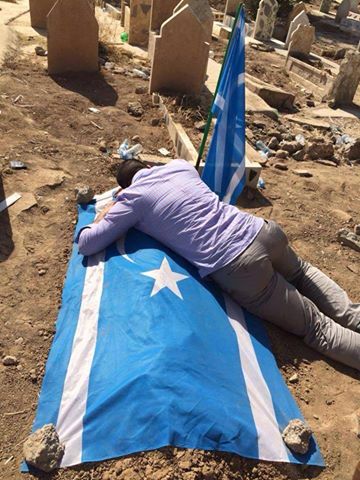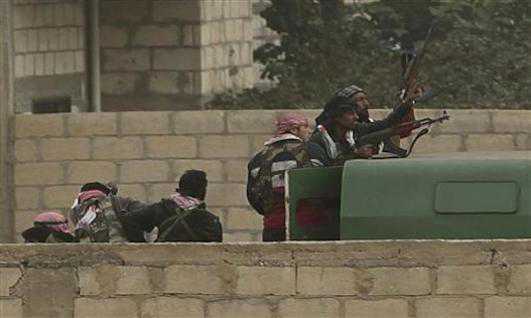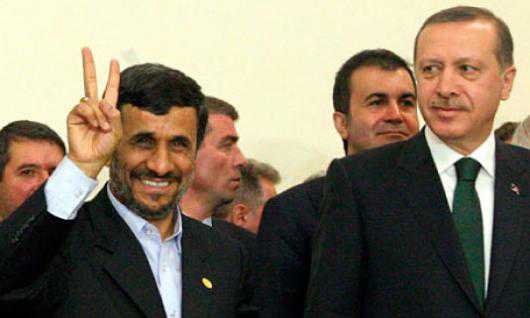Erbil, the capital of Kurdish Iraq, effectively an independent country for twenty years, safe to visit, democratic sort of, in the midst of an economic boom and dreaming of being another Dubai in a decade.
Clean lines of a brand new airport. The mildly Islamist Turkish Prime Minister Erdogan officially opened it the week after we arrived. Tony is not waiting for us but then I remember this is because we need a 2 km bus ride to the area where he is allowed to be. There he is, stocky and shortish and energetic, waving.
The countryside is usually, Tony says, parched and brown, but in March a down of an almost unnaturally bright green covers the ground for a moment.
Lidl, our driver, speaks some English. Just enough. He is not a Kurd, he says, but a Christian. Even though he is that rare thing in Iraq: an atheist. Tony tells me there are two kinds of Christians, Assyrians and Chaldeans, speaking different languages. This is the British Museum made flesh.
Off to the mountains, stopping in a place called Shaklawa which Tony describes as the Kurdish Sinaia, but seems a place of little interest. We try to find a hermitage and glimpse a chapel in a cemetery. A Christian church, modern, bare interior like a church hall rather than a church. Heart-warming to see Christians in a part of the world I think of as Muslim. A ramshackle town built of breeze blocks is a bazaar straggling along the main road. Here we buy Turkish delight and halva and then we turn back just as the scenery becomes interesting. A very slow crawl through many military road blocks in to Ankawa. This is not usual at all, says Tony, even though Friday is the Muslim Sunday and Saturday is Monday. The jam is caused by Nowruz, the festival of the spring equinox, a pre-Islamic festival which has become a symbol of Kurdish national identity since the 1950s. It was banned in Turkey and under Saddam. Every Kurd leaves town for the day and picnics. Plus the road we were on leads to the Kurdish President’s home town and is guarded jealously. And of course we are here at a time of political unrest in Kurdistan and upheaval across the region. There were bonfires at the side of the road, Kurds were dancing in the evening light and flags were waved.
Marina, a large gloomy restaurant where we can only get a table in the gallery. Noemi is one of only two women in the place. The rest are men with Saddam moustaches drinking beer, not looking joyous. Good Lebanese food, good Lebanese wine, a group of musicians with Saddam moustaches strike up Kurdish music and I think they could be a lithograph from a mid 19th century travel book. Everything in this sub fusc place seems to be in sepia.
Tony’s house in Ankawa, which is penetratingly cold, as he had warned. The kind of cold that comes from never having been anything else than cold.
I have a stamped Iraqi visa in my passport, therefore I am. One travels to prove one objectively exists. Does one ever quite succeed?
Iraq has British three-prong plugs which I suppose are iconic. Proud-making.
Saturday
Lidl’s morose cousin, a devout Christian unlike Lidl, knows a way to the Mar Matei monastery which does not leave the Kurdish Regional Army’s remit where all is safe. We do it in only 90 minutes. Mar Matei (St Matthew, named after its founder, a monk who sought refuge from the persecution of Julian the Apostate) is a fourth century monastery mostly rebuilt in 1845. It is very close to the border between the safe Kurdish region and the unsafe Iraq held by the federal army. I had found it with some searching in Google images and only one person I spoke to in Iraq had heard of the place. It stands in the mountains commanding a ravine. No sign posts and, once there, no explanations. This is tourism, to use Roland Barthes’ pretentious Marxist jargon uncooked. This I like. Like all tourists I am chasing authenticity which by definition cannot be chased. Two coaches made my heart sink but they had brought a party of pilgrims from Erbil who were on a three-day pilgrimage. No signs explaining the history of the place, but it is always best to be told history not to read it. I found a monk who spoke English who explained the story of the place. They are Assyrians. Many Christians had taken refuge in Kurdistan from the Arab South, he said. He agreed sadly that things had been better for the Christians under Saddam.
The monastery is large and I later found on the net (where there is not much to find) that the lower parts of the church are old but the monastery was left in ruins after the Mongols sacked it, was rebuilt in the 18th century and then in 1845.
Women wander around in jeans and it is good, said Tony, to be with one’s own people. Benign monks. Christianity is very beautiful and the ancient churches of the East so much more so than the recent Protestant heresies. I suppose the Church of England is a teddy bear with its stuffing falling out. Here as among the Catholics and the Orthodox is the real thing.
The Christian Middle East. The Middle East is not only Muslim and Christianity is Middle Eastern, not European, despite Belloc’s ‘Europe is the Faith and the Faith is Europe’.
Lalish. Our devout Christian driver got terribly lost looking for Lalish though he asked people repeatedly. He finally insisted that a brand new building standing empty in a field was the temple and we had to call Lidl to get him to keep looking. The total lack of curiosity of people about anywhere outside the town they grew up in. It is we who are the odd ones with our love of travelling around.
An extraordinary and very moving place. There is something very spiritual (over-used word) about the temple and its setting.
The boys who live beside the temple are the temple servants, we were told. The snake emblem by the main door (the Muslims and others accuse the Yazidis of devil worship). Fire inside a little shrine. Fire worship? The dark interior. The hanging cloths which we are told it is lucky to tie, make a wish, then untie. This seems a religion of superstitions rather than St Thomas Aquninas. The underground cave which is forbidden to us. The sound of water. I thought: where Alph the sacred river ran, through caverns measureless to man, down to the sunless sea.
The temple is surrounded by ruined and semi-ruined buildings, a sense of decay and untidiness, but the hills that surround the place have a moving and strange quality. They really do feel very spiritual. This place has a very moving and eerie but attractive atmosphere. And all unexplained. Even the net has little.
An arch decorated with a symbol of the sun leading seemingly to nowhere. Strange and touching. I wanted to evacuate my bladder a mile away but Tony wisely told me we were on sacred ground.
A birthday party for a handsome Lebanese Christian businesswoman at Speed Centre, a go-karting place with pizza restaurant attached where foreigners go and women are normal. This is one of two expat places. Gloomy, depressing. Lots of nice intelligent Lebanese here to make money but very bored in the evenings. Missing Beirut. So would I.
We rather drag Tony to it and the crowd in their late 20s are, he says, too young for him. I hadn’t noticed they were younger than me and I am seven years his senior. I tell him this. I suppose I am immature, I say. No, eccentric, he replied.
Everyone bar us is Lebanese and only one is Muslim and he, I am told, is ‘modernized’ but the man sitting next to me, when I ask him if he is a Christian or a Muslim, says I don’t mind this question but it could be considered racist.
A man shows me his Phalange membership card and says no-one at this table knows I have this. He tells me his father told him Muslims cannot live in a country where they are not the government.
Sunday
A third day driving. Tony has to work.
A reservoir built by Saddam, very beautiful, as is all the road. A tiny ancient church which looks as if it were built by a child from clay this year, but has been carefully preserved. Lidl does not know how old it is and the bodyguard does not either. But both know that it is very old.
Sulamaniya, the second city of Kurdish Iraq. Lidl takes us to his favorite restaurant where we eat Kurdish food. Much like Arab food but with soups and pickled vegetables – Kurds are a mountain race. The lamb soup was heavenly and I drink Noemi’s too. Beside us a table of women in peasant costume seem very like Romanian gypsies but are I am told villagers. They do, I think, have gypsies here and I should love to meet some.
Sulamaniya – the prison where political prisoners were kept is closed. They open it for us but it has bad karma. The archaeological museum is closed because today is a holiday. The streets are impassable because of the unofficial anti-government Nowruz festival/protest. This is the centre of the opposition, a tribe which is excluded from the coalition that rules the Kurds.
We pass through Koya which is clearly old, and I tell Lidl to stop when I see a castle. It looks almost like a fort in a Western. The castle is locked up but I hear a noise and an old man who looks after the place opens it for me and lets us in. The old man was wearing what looked like a dressing gown. A wide grass square described by thin white battlements. From one corner I look over the town and bonfires lit for Nowruz. The old man who speaks little English says this is 700 years old.
Monday
A morning to relax, two business meetings in the afternoon and a couple of hours in the drizzle in the old center of Erbil which, like Jericho Damascus and Aleppo, vies for the distinction of being the oldest continuously inhabited town in the world. When Rome was seven hills covered in forest, Erbil was a sizeable place. The old city is a hill on which towers the citadel, a vast building. Two years ago the inhabitants, the poorest of the poor, were moved out, except for one family who remain so that the citadel remains inhabited. When the UNESCO-approved works are completed the citadel will be inhabited again, but not by the people who did live there. It will become a place for prosperous people to live and Tony, who is a bourgeois, relishes the idea that it will contain restaurants. As it is the citadel is, save for the central street, closed to visitors, only by ribbon, but this being Iraq and a time of turbulence in Nowruz, I decided to take Tony’s advice not to hop under the striped ribbon and explore. This is not uncooked. The museums of course are shut for the holidays. The ancient minaret is visible some way off. The town beneath the citadel walls is charmingly decrepit. The bazaar for which Tony apologizes is a good, unpretentious bazaar. Tony prefers the one in Istanbul.
Nowruz to be honest a little bit of a bore – not even the tribal uprising I had perhaps irresponsibly hoped for. Still got taken by the crowd and involved in dancing and flag waving. I put down my umbrella but was wearing my good suit. I secretly hoped they might ask me to be their king but I was not to be a second Auberon Herbert.
The houses of prosperous Ankawa Christians are built in a fantastic style which as Noemi says looks good here but would not elsewhere. They merit a coffee table book but I did not take pictures (I never seem to get round to using cameras). The nearest thing I ever saw to it is the palaces of Romanian gypsies in villages like Buzescu. Near Tony’s house are a number of mutually schismatic new built churches, magnificent in the Arab-Kurdish modern vernacular style. In every case the interior is not quite as bare as a low church place.
Dinner with Tufan at the dark cavernous Hotel Chakra is a success. There is something of 90s Romania about the gloomy heaviness of the hotels and restaurants. The Chakra is built in a strange, rather funny Kurdish taste like Lord Leighton’s idea of the East or the Turkish Bath in Jermyn Street. I dreamed I dwelled in marble halls. Tufan is a man. And badly injured because of a moment of inattention on his motorbike in Elbesan Albania. He is a Communist and admirer of Kemal. Saddam he says gave the people land. Noemi is enchanted by him platonically. I like him very much too. He has a velvet voice and thinks.
Tuesday
With Noemi towards the Iranian border, we having otherwise rather exhausted Kurdish Iraq’s tourist potential. Idyllic scenery. Waterfalls. Mountains. Noemi thinks they resemble the Carpathians in Transylvania but I think they are very different and very beautiful. A stop for a strange Kurdish lunch beside the road. Chicken kebab and bread cooked in a tomato broth as I gazed at stunningly beautiful mountain scenery through the window. And then further on the Hamilton Road built by a New Zealander in the 1920s and one of the great road journeys. But the time comes when, without reaching the Iranian border, it is later than we thought and we turn round.
Thursday
Business meeting at the mall. The future of the world is already here and it is one mall from Vladivostok to Patagonia.
Friday
I get Lidl to take me to the one old church in Ankawa. I guessed there must be one and there was but the only words about it on the net were a little hard to understand.
Other historical evidence confirming the historical depth of Ankawa “Alhjeran” which is found in 1995 in the church of Mar Gourgis sculpted by the writings in Syriac. Here are some information on these stones: The first stone: yellow stone was introduced by 40 cm and 80 cm length. Text carved on the stone says that the church of Mar Gourgis was re-built in the 816. Stone II: the text is also engraved in Syriac and it has the date of death of the priest in 917 m of Hormuz.
A mustached Christian refugee from Baghdad with a rifle guards it. The church, renovated a few years ago, looks modern and unlovely from the outside. The inside is bare with pews, stations of the cross and almost nothing else but Lidl points out above the entrance to the chancel a small wall painting of St George slaying the dragon which he said dated from 935. Near the church everything has been rebuilt but Lidl shows me one brick wall of venerable antiquity which was, he says, what the whole little place was like when he was a boy. He is only 28 now, I remind myself (he looks 38 – one’s twenties in Iraq are not the prolonged adolescence they are in England). Across the road from the church are the foundations of a building which Lidl says is very old indeed and I wonder, looking at the grass swards covered in rubbish, what it could have been.
A simple Kurdish lunch with Tony, soup and then kebab with rice and zacusca and beans.
Istanbul. Kitchenette, a restaurant in the Hotel Marmora in Taksim Sq seems a wonderful antidote to Iraq. I like imperial cities. Paulius takes us first to a restaurant. The food was normal but the view across the Bosporus was quite stunningly beautiful. Then an expensive fashionable place high up with another great view and then fortunately we were flagging and came home. Lina quoted me saying many clever things the next day which I did not recall and do not recall now.
Saturday
Wonderful breakfast of cheese and ham and rye bread brought from Vilnius and of course Paulius’s incomparable view of the Bosporus. For the first time I find myself liking Istanbul, modern and comfortable and Western though it is. Perhaps one has to come from Kurdish Iraq, not Romania. Both because Istanbul is exciting, buzzy and full of beauty (Erbil is none of these things) but also because Kurdish Iraq reminds one that Istanbul, Western though it is, is still the Orient.
On Paulius’s and Lina’s advice I go to Cora, a church with wonderful mosaics made into a museum.
Lunch. We find a place to eat Turkish food in the sun. I like these two foodies. I intend to take food seriously and wine too. Paulius, whose favorite country is Germany, thinks a Chinese-dominated world will be a good thing. Turkey is now looking Eastward, will resume its Ottoman role and lead the region to democracy.
I found this on the net by Bernard Lewis in a debate with the insufferable bore Edward Said: the Roman Empire and the medieval Islamic Empire were not conquered by more civilized peoples, they were conquered by less civilized but more vigorous peoples. But in both cases what made the conquest, with the Barbarians in Rome and the Mongols in Iraq, what made it possible was things were going badly wrong within the society so that it was no longer able to offer effective resistance.
Paul Wood is the director of executive search firm Apple Search.





